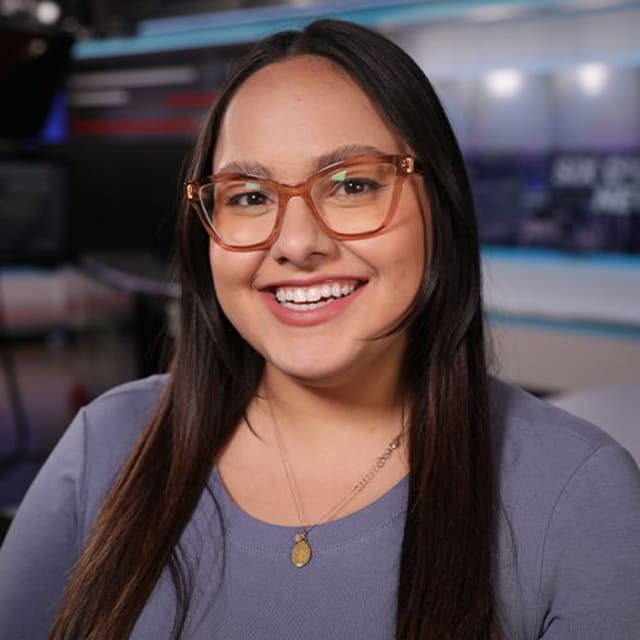SAN ANTONIO – You’ve likely heard the term “check on your strong friends”-- alluding to the idea that anyone can struggle with mental health, regardless of how they are seen by world. But how can we do that?
It can be hard to know when to check in on your loved ones or even make time for a call when we are all living our own lives.
In the midst of a pandemic, as much of the world is looking for ways to shed light on mental health, two San Antonio entrepreneurs set out to make it easier than ever to make a difference.
“There’s this pent up desire for people to talk about mental health. But what I’ve realized is nobody wants to go first,” Lorenzo Gomez said.
He and Steve Cunningham are the co-founders of the app ‘We Tree’. They call it ‘the mental health minute’-- as that’s all it takes. The first 30 seconds is a daily survey with eight questions based on the science of positive psychology about your day and mental health. The questions are answered using a ranking system from 1-5.
Gomez believes society has been conditioned to fake a smile or always answer “good” when asked how we’re doing. The number system used in the app makes it much easier for someone to share how they are really feeling.
“Even the people that you love whenever you’re struggling, you tell yourself this lie, which is, I don’t want to bother them and I don’t want to burden them with my problems. So the app is very simple. You’re way more likely to click a one saying, ‘I’m struggling,’ than to tell someone that I’m struggling,” Gomez explained.
After submitting your assessment you’ll see how your ‘inner circle’ answered theirs. The inner circle consists of only the people you choose. Cunningham said it’s often a group of between 2-10 friends and family.
“You’ll see what they post as well. And when somebody’s doing well, you’re going to reach out and give them some encouragement. And when you see that they’re having a tough day, you’re going to reach out and see how you can support them,” Cunningham said. “This is allowing people to have conversations that they otherwise would never have. [It’s] facilitating this real world connection and these deep and meaningful conversations that people are just not having right now.”
Cunningham came up with the idea for the app while working in the personal development space. He included his loved ones in an exercise where they shared their goals in different areas of life--including emotionally and psychologically. He was surprised to learn that every single person was struggling with fear and anxiety.
“And I didn’t know... and a lot of these people I had known for a very long time,” he said. “They weren’t talking about it with me. They weren’t posting it on social media. And so we just came up with this simple way for folks to better communicate when and how they’re struggling so that the people around them can support them.”
Gomez on the other hand had already found a way to start the conversation on mental health. In 2019 he wrote ‘Tafolla Toro: Three Years of Fear’, a book about his own struggles growing up on the city’s West Side during an era of high crime and violence. “I just saw a lot of violence as a 12 year old that I didn’t know what to do with it,” he said. It wasn’t until he unpacked his childhood experience in therapy in his early 30′s that he knew he needed to “go first”.
“Just like a fitness trainer gives you exercises... There are these types of tools in the mental health space that I didn’t even know existed. And so I want to give this tool to people that grew up like myself that maybe didn’t know [mental health] was a thing or grew up not talking about their feelings,” Gomez shared.
While society has put more focus on normalizing things like therapy and self-care, not everyone has the same access. Gomez and Cunningham believe that 90% of mental health can be solved by utilizing what we already have.
“All of the research shows that the best way to combat fear, anxiety, and depression is to surround yourself with a supportive network of people that you can share your challenges with,” Cunningham said. “Having a therapist, a workout routine or doing meditation is good, but it’s not enough. And the one piece that is missing right now from the world is the ability or a tool to help folks have better, stronger relationships.”
We Tree is currently available on desktop. Gomez and Cunningham are just weeks away from launching the mobile app version.
There are different plans to choose from beginning with the basic free plan to get started. You can find more details on their website.

